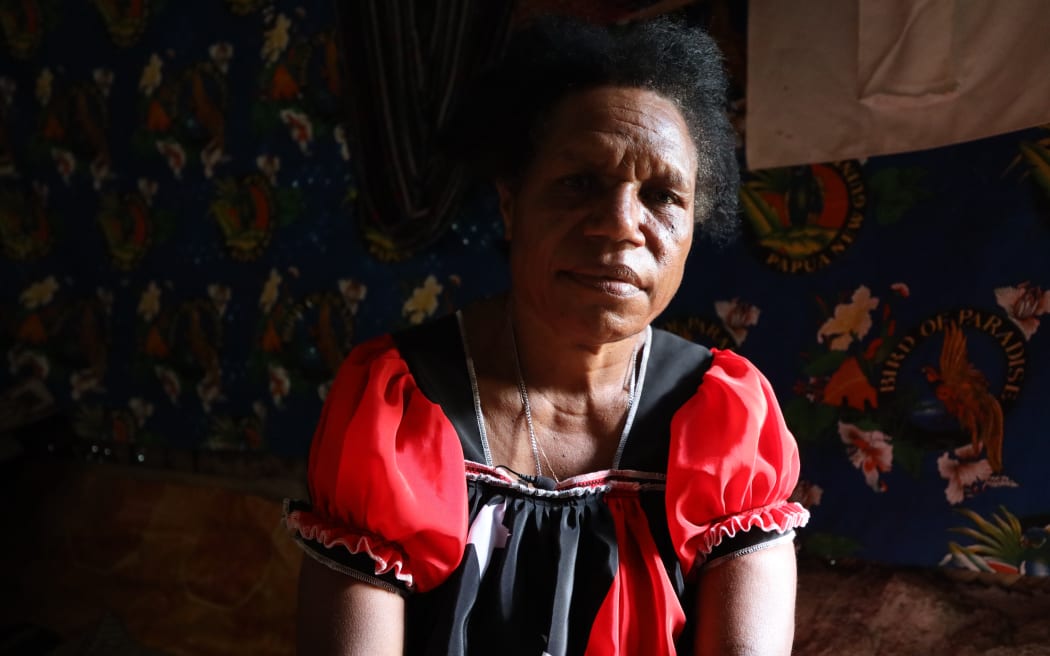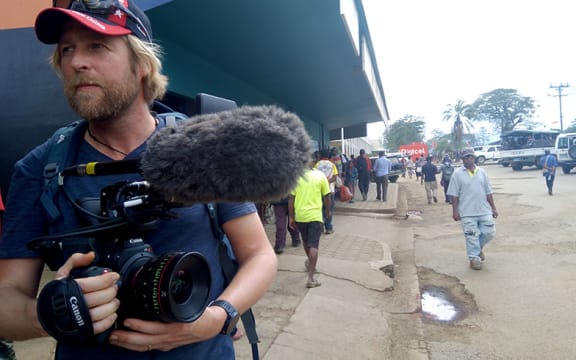The Detail talks to a New Zealand filmmaker who is trying to shine a light on the growing problem of sorcery violence in parts of Papua New Guinea.

Evelyn Kunda is trying to rescue women accused of sorcery. Photo: Supplied
Kiwi filmmaker Paul Wolffram was in the Highlands of Papua New Guinea, interviewing people about the disturbing rise of sorcery killings, when someone handed him a note.
Written on it was the name of a woman who has been risking her life to hide victims in a safe house. Her own home has already been burnt down, she has been run out of her town and she has to rebuild her life in a shack in the shanties on the edge of town.
That woman, Evelyn Kunda, is the focus of a documentary called Wildfire, and Wolffram - who is also an associate professor in the film programme at Te Herenga Waka, Victoria University of Wellington - has just returned to Papua New Guinea to complete it.
While the police and other government authorities have thrown their hands in the air over the problem, Kunda is tackling it with no resources, he says.
"She's just an ordinary person, very involved with the Catholic Church and she's doing some good work up in Goroka to try and support the victims of sorcery violence," he says.
With his film, Wolffram says he aims to bring international attention to the growing problem of sorcery violence and to get support to Kunda.

Filmmaker Paul Wolffram. Photo: Supplied
"It won't take much for somebody to say, 'Well here's this woman supporting these witches' and it will come back on her."
Wolffram has been working and living in Papua New Guinea on and off for 20 years, immersing himself mainly in the coastal communities to learn the languages and customs. It was only when he travelled to Goroka in the Highlands in 2017, to volunteer as a teacher of film production at the university, that he learned more about sorcery violence.
He tells The Detail how he first heard about it when he was at the market in Goroka buying fruit and vegetables. People he met there spoke freely about what they had witnessed or been part of in their village.
"One young man told me without any qualms or hesitation that they recently had to kill a witch in his village, because if they didn't take care of it, nobody else would to stop what they perceive as sorcery."
Sorcery violence or 'sanguma' is not part of Papua New Guinea's customs, says Wolffram. Many communities have had magical world views and sorcerers similar to tohunga, who are the traditional holders of knowledge, but there was very little or no violence.
With sanguma, he says, people are looking for someone to blame when there is a premature death in their community - and it is not an occasional event.
"Their belief in sorcery has completely dominated people's mindsets up there at the moment."
Wolffram explains the "range of risk factors" that are causing instability in the population of more than nine million people, including climate change, natural disasters, economic inequality, tribal violence, gender violence and a mistrust of government.
He warns that New Zealand cannot ignore what is happening in a country located between South East Asia and the Pacific, that is geographically and politically important.
"People are starting to talk about it verging on a failed state and if that happens it could have a huge impact on New Zealand."
Find out how to listen and subscribe to The Detail here.
You can also stay up-to-date by liking us on Facebook or following us on Twitter.

Photo:


